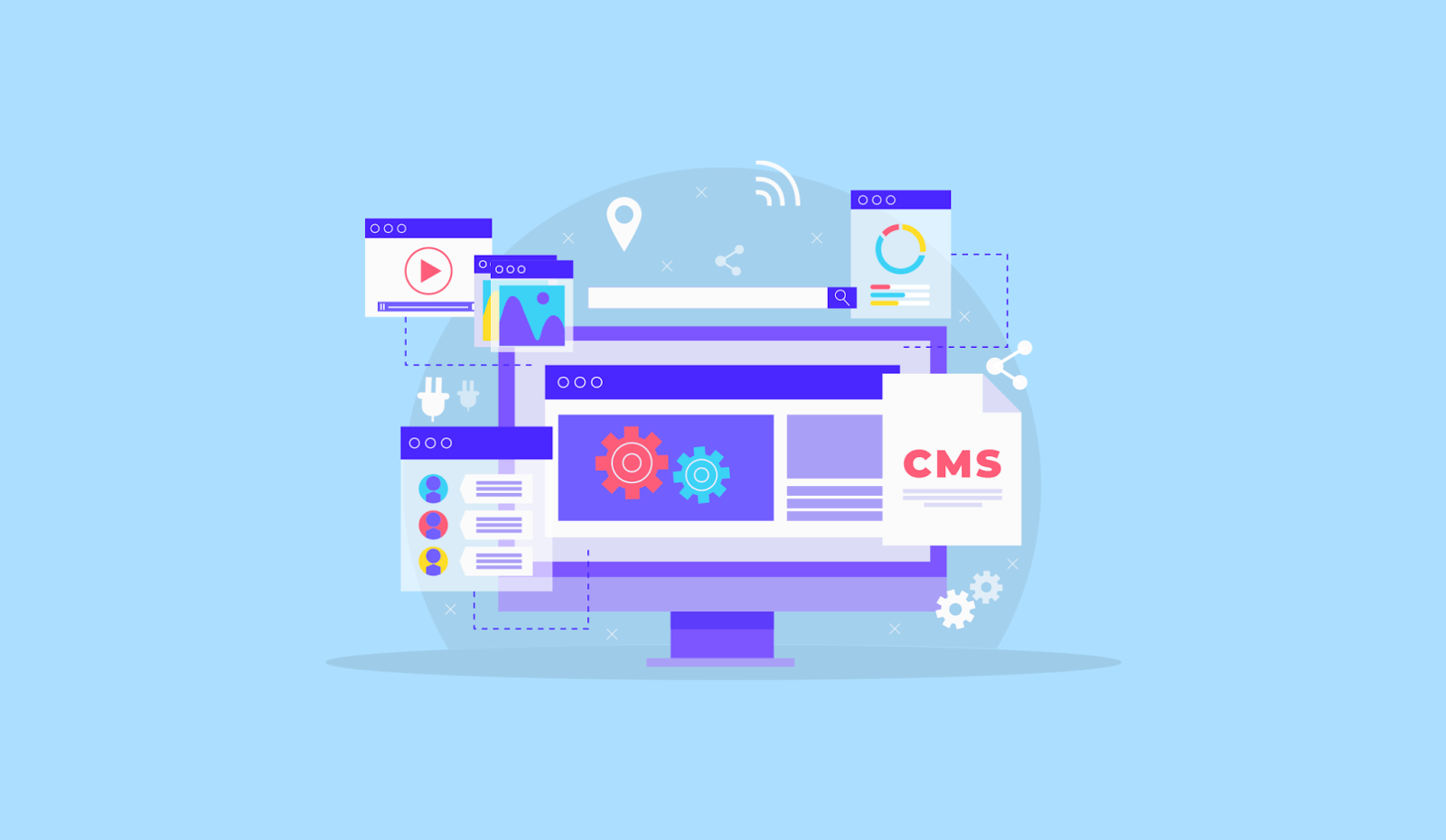One of the most essential choices your organization will make is selecting the correct content management system (CMS) for your website. A CMS not only offers the structure and capabilities for web design and development, but also for how your company will grow and prosper online.
The coronavirus epidemic has made company operations even more digital while stretching budgets globally, indicating the need for CMS solutions to do more with less, to minimize overhead and overall project costs by using open-source CMS platforms free of vendor lock-in, and an even greater requirement to stay competitive in terms of user experience (UX) for both site administrators and end-users.
And now, with the beginning of the Russian-Ukrainian war, inflation in the United States, and the energy crisis in Europe, this trend has only intensified. In this article, we will talk about how best to choose a CMS that will best suit your business in all respects.
Table Of Contents
Tips for Selecting the Best CMS
Implementation Timeline
Some CMS systems take twice as long to deploy as others, affecting development costs.
Also, if you’re switching to a new CMS, keep in mind that a team of designers and developers will install content more expertly on a known CMS. Learning the intricacies of a new CMS takes time and money, and some CMS systems have a higher learning curve.
Make certain that the advantages of a new CMS outweigh the time required to establish a new system. Sometimes custom cms development services can be a good option, but first you need to discuss this option with specialists.
Customization
Choosing CMS systems only on the capabilities they provide is often not a smart idea. If a system’s functionalities are extremely limited, it will be unable to meet your company’s particular changing needs, therefore do research and examine the possibilities of supporting plugin libraries and customization alternatives.
Furthermore, choosing a content management system with a large number of features will not give you any real benefit. If you do not plan to utilize anything that has been made accessible and is unable to personalize it. As a consequence of this form of ‘feature bloat,’ you may encounter usability and development challenges. As one of the top content management systems, a more modular CMS platform might give you better customization and flexibility in this scenario.
Determine Your Budget
The correct CMS will satisfy all of your requirements while not exceeding your budget. Some CMS systems are free to use, while others may charge platform user fees in the hundreds of dollars. Additionally, ancillary charges like themes and plugins, eCommerce fees, site and mean stack development and maintenance costs may soon mount up.
Select a CMS that Enables Omnichannel Marketing
Even if your company is now solely using a desktop or mobile sites, it is critical to examine alternative properties that you have not yet investigated but may profit from in the future. Content is now available in the form of AR/VR, smartphones, kiosks, digital assistants, jumbotrons, and other devices, with no signs of slowing down in the near future. Choose a CMS system that can accommodate additional channels as they become available.
Asset Management
Some CMS solutions handle image and file management poorly. With poorly built systems, issues of accessibility and simplicity of use may generate irritation. Images, in particular, may be problematic. Ensure that the content management system you choose requires content providers to provide alt attributes with their images. You may also want a CMS that has basic image editing features like cropping, resizing, and rotating images. However, locating such a CMS might be difficult.
Consider how the content management system handles uploading and attaching PDFs, Word documents, and other items of a similar kind. How are they then shown to users? What descriptions may be linked to the files, and can the search index them?
Concentrate on Scalability
Every successful website or business will ultimately grow in size. If you haven’t prepared ahead of time and picked the correct content management system, you may be disappointed when you encounter CMS scaling issues.
Identify a content management system that will allow you to grow fast and effectively in the future, and assess if scaling will incur extra expenditures. When adding goods to a CMS with eCommerce functionality, for example, you may pay additional expenses.
Conclusion
It is challenging to choose the best CMS. When determining whether to utilize open-source or branded software, several variables must be investigated, planned, and evaluated. The finest CMS for your business is one that can fulfill your demands now and tomorrow, as well as one that can help you prosper in the long term.



